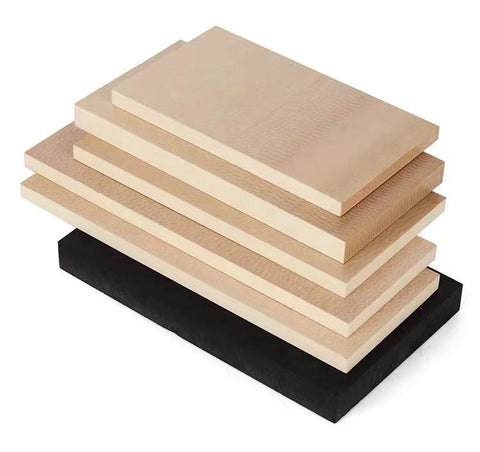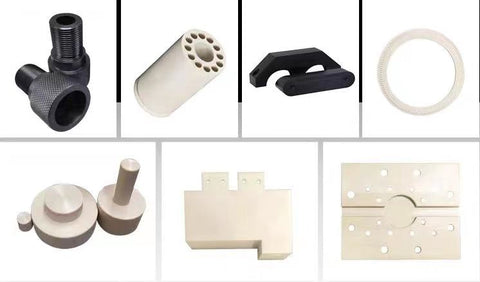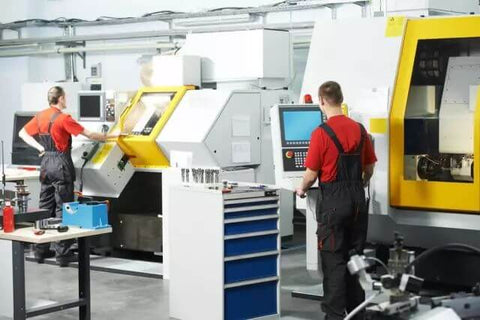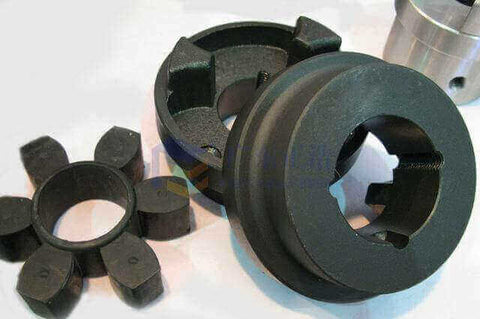Case Studies: Success Stories in Machine Building with PPS CNC Machining
The practical application of PPS CNC Machining in various industries has led to numerous success stories. These case studies not only demonstrate the effectiveness of PPS in real-world scenarios but also highlight the significant improvements and efficiencies gained. Let's explore some of these instances to understand the impact of PPS CNC Machining in industrial machine building.
Aerospace Industry: High-Performance Components
Case Study: Advanced Jet Engine Parts
In the aerospace industry, a leading manufacturer utilized PPS CNC Machining to produce critical components for jet engines. These parts were subjected to extreme temperatures and harsh chemical environments. The use of PPS, known for its high temperature and chemical resistance, resulted in components that exhibited enhanced durability and reliability. This led to a notable increase in engine performance and a reduction in maintenance frequency, significantly boosting the operational efficiency of the aircraft.
Automotive Industry: Durable and Reliable Parts
Case Study: Automotive Sensor Housings
In the automotive sector, a company specializing in car manufacturing implemented PPS CNC Machining for creating sensor housings. These housings were exposed to both high temperatures and corrosive substances. The adoption of PPS, with its robust chemical resistance and thermal stability, ensured that the sensor housings remained intact and functional over extended periods, contributing to the overall safety and longevity of the vehicles.
Electronics Industry: Precision and Stability
Case Study: High-Precision Electronic Connectors
A notable example in the electronics industry involved the use of PPS CNC Machining for producing electronic connectors. These connectors required precise dimensions and stability to function effectively in electronic devices. The dimensional stability of PPS allowed for the production of connectors with exact tolerances, leading to improved electrical performance and reduced risk of connectivity issues.
Chemical Processing Industry: Enhanced Safety and Efficiency
Case Study: Corrosion-Resistant Piping Components
In the chemical processing industry, a company faced challenges with piping components corroding due to exposure to aggressive chemicals. By switching to PPS CNC Machined parts, they achieved a significant improvement in the lifespan of these components. The chemical resistance of PPS ensured that the parts did not degrade, enhancing the safety and efficiency of the chemical processing operations.
These case studies across various industries underscore the versatility and effectiveness of PPS CNC Machining. By providing solutions that are durable, reliable, and precise, PPS CNC Machining has proven to be a game-changer in the world of industrial machine building. The success stories highlighted here are just a few examples of how this technology is being leveraged to overcome challenges and drive innovation in different sectors.
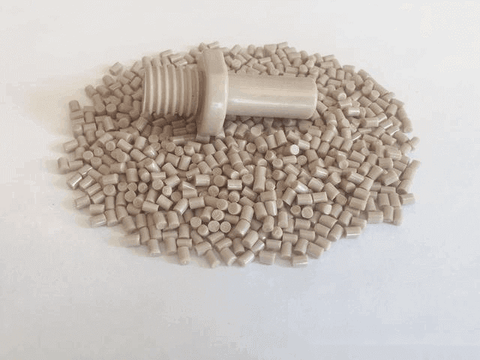
PPS CNC Machining vs. Traditional Materials
In the evolving landscape of industrial machine building, the comparison between PPS CNC Machining and traditional materials is crucial to understand the advancements in material science and manufacturing techniques. This section explores how PPS stands out against conventional materials, particularly in applications where its unique properties offer superior performance.
Superior Heat Resistance of PPS
Comparing PPS with Metals and Plastics
One of the most significant advantages of PPS over traditional materials like metals (e.g., steel, aluminum) and standard plastics is its exceptional heat resistance. While metals can withstand high temperatures, they often require complex cooling systems to maintain their integrity. Standard plastics, on the other hand, tend to deform or melt under extreme heat. PPS, with its ability to withstand temperatures exceeding 200°C without degradation, offers a unique advantage in high-heat applications, such as in automotive engine parts or aerospace components.
Chemical Resistance and Durability
PPS vs. Metals and Other Polymers
Another area where PPS excels is in its chemical resistance. Metals, although durable, can corrode when exposed to certain chemicals. Traditional polymers might offer some resistance but often fall short in harsh chemical environments. PPS, however, maintains its structural integrity even when exposed to a wide range of aggressive chemicals, making it an ideal choice for chemical processing equipment and components in corrosive environments.
Dimensional Stability and Precision
The Edge of PPS Over Traditional Materials
In terms of dimensional stability, PPS outperforms many traditional materials. Metals, while strong, can expand or contract significantly with temperature changes, affecting precision. Standard plastics may warp or creep under load or over time. PPS, however, remains dimensionally stable even under stress or fluctuating temperatures, ensuring consistent precision in applications like electronic connectors and precision gears.
Weight and Cost Considerations
Balancing Performance with Efficiency
While metals are often favored for their strength, they are also heavier, which can be a drawback in industries like aerospace and automotive where weight reduction is crucial. PPS offers a lighter alternative without compromising on strength or durability. Additionally, while the initial cost of PPS might be higher than some traditional materials, its durability and lower maintenance requirements can lead to cost savings over time.
Environmental Impact and Sustainability
PPS as a Greener Alternative
From an environmental perspective, PPS is often seen as a more sustainable option compared to some metals and plastics. Its longer lifespan and ability to be recycled reduce the environmental footprint, making it a more eco-friendly choice in the long run.
In conclusion, PPS CNC Machining presents a compelling alternative to traditional materials in industrial machine building. Its superior heat resistance, chemical durability, dimensional stability, and potential for cost and environmental efficiency make it a standout choice for a variety of applications where traditional materials may fall short. As industries continue to seek advanced materials that combine performance with sustainability, PPS is poised to play an increasingly significant role.
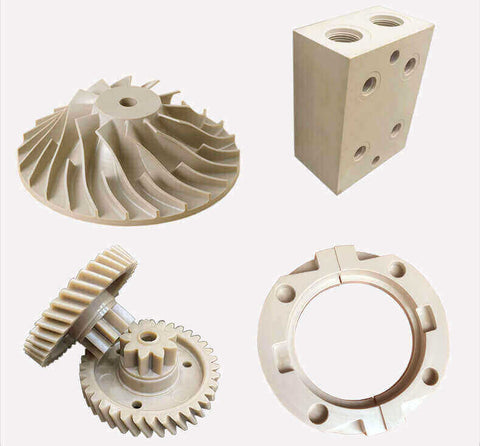
Innovations in PPS CNC Machining Techniques
The field of PPS CNC Machining is continually evolving, with new advancements and techniques emerging that significantly enhance the capabilities of industrial machine building. This section explores the latest innovations in CNC machining with PPS and how these developments are pushing the boundaries of what's possible in industrial manufacturing.
Advanced CNC Machining Technologies for PPS
Precision and Efficiency at the Forefront
One of the key advancements in PPS CNC Machining is the integration of more sophisticated CNC technologies. These include high-precision milling and turning machines equipped with advanced software that can handle complex geometries and intricate designs. This precision allows for the creation of PPS components with tighter tolerances and finer details, essential in industries like aerospace and medical devices where accuracy is paramount.
Enhanced Material Handling and Tooling
Optimizing PPS Machining Processes
Another significant innovation is the development of specialized tooling and material handling techniques for PPS. Given its unique properties, PPS requires specific cutting tools and machining parameters to optimize the machining process. The use of diamond-coated tools, for instance, has been a game-changer, reducing wear and improving the finish quality of PPS parts. Additionally, advancements in cooling and chip removal techniques have further enhanced the efficiency and quality of PPS machining.
Integration of Automation and AI
The Future of PPS Machining
The integration of automation and artificial intelligence (AI) in PPS CNC Machining is a groundbreaking development. Automated systems equipped with AI algorithms can optimize machining parameters in real-time, adapting to the specific characteristics of PPS. This not only increases productivity but also ensures consistent quality across batches. Moreover, AI-driven predictive maintenance can foresee potential machine failures, reducing downtime and prolonging the life of the machinery.
Sustainable Machining Practices
Eco-Friendly Approaches in PPS Machining
Sustainability is becoming increasingly important in manufacturing, and PPS CNC Machining is no exception. Innovations in this area include the development of more energy-efficient CNC machines and the recycling of PPS chips and offcuts. These sustainable practices not only reduce the environmental impact but also contribute to cost savings, making PPS machining more eco-friendly and economically viable.
Collaborative Robotics in PPS Machining
Enhancing Safety and Productivity
The use of collaborative robots (cobots) in PPS machining setups is another exciting development. These cobots work alongside human operators, handling repetitive or hazardous tasks, thus enhancing safety and efficiency. Their flexibility and ease of programming make them ideal for small-batch production and custom PPS parts.
In conclusion, the innovations in PPS CNC Machining Techniques are transforming the landscape of industrial machine building. These advancements, from precision technologies to sustainable practices, are not only enhancing the capabilities of PPS machining but are also setting new standards in manufacturing efficiency, quality, and environmental responsibility. As these technologies continue to evolve, they will undoubtedly unlock new possibilities in industrial manufacturing.
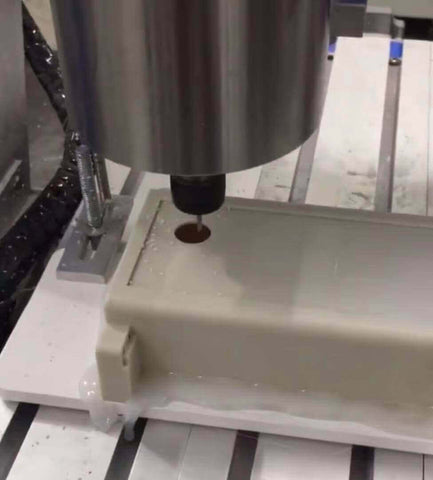
Future Trends and Potential of PPS in Industry
As we look towards the future, the potential of PPS (Polyphenylene Sulfide) CNC Machining in evolving industrial applications is immense. This section explores the emerging trends and the expanding role of PPS in the realms of sustainability and advanced manufacturing processes.
PPS in Advanced Manufacturing
The Growing Role of High-Performance Polymers
In the world of advanced manufacturing, materials like PPS are becoming increasingly important. With industries pushing the limits of what's possible, the demand for materials that can withstand extreme conditions while offering precision and durability is on the rise. PPS, with its unique set of properties, is well-positioned to meet these demands. Its role in sectors such as aerospace, automotive, and electronics is expected to grow, particularly as these industries adopt more sophisticated manufacturing techniques.
Sustainability and Eco-Friendly Manufacturing
PPS at the Forefront of Green Initiatives
Sustainability is a key trend shaping the future of industrial manufacturing, and PPS plays a significant role in this shift. The durability and recyclability of PPS make it an environmentally friendly option compared to some traditional materials. As industries increasingly prioritize reducing their environmental footprint, the use of PPS is likely to expand, especially in applications where reducing waste and enhancing the lifecycle of products are critical.
Integration with Emerging Technologies
PPS and the Digital Manufacturing Revolution
The integration of PPS with emerging technologies such as 3D printing, AI-driven CNC machining, and the Internet of Things (IoT) is a trend to watch. These technologies can unlock new possibilities for PPS in terms of design complexity, customization, and efficiency. For instance, 3D printing with PPS could lead to the production of more complex and lightweight parts, while AI and IoT integration in CNC machining can optimize the manufacturing process, ensuring higher precision and lower costs.
Collaborative and Adaptive Manufacturing
PPS in the Era of Smart Factories
The concept of smart factories, where everything is connected, automated, and adaptable, is becoming a reality. In these environments, materials like PPS that can be precisely machined to meet specific requirements are invaluable. The ability of PPS to be used in a variety of applications, from high-stress mechanical parts to high-precision electronic components, makes it a versatile player in the future of collaborative and adaptive manufacturing.
The Role of PPS in Customization and Small-Batch Production
Meeting the Demand for Personalization
As consumer demand shifts towards more personalized products, the ability to produce small batches efficiently becomes crucial. PPS CNC Machining is well-suited for this trend, offering the
flexibility to produce customized parts without the need for extensive retooling. This adaptability makes PPS an ideal choice for industries looking to offer bespoke solutions or limited-run productions, where each piece needs to meet specific requirements while maintaining high quality and performance standards.
PPS in Emerging Markets and Applications
Expanding Beyond Traditional Boundaries
Looking further ahead, the potential of PPS CNC Machining extends into emerging markets and novel applications. As new technologies develop and industries evolve, PPS could find applications in areas like renewable energy, medical devices, and even space exploration. Its ability to perform under extreme conditions makes it a candidate for innovative uses, such as components in solar energy systems or parts for space vehicles.
Embracing a Circular Economy with PPS
PPS's Role in Sustainable Industrial Practices
In the context of a circular economy, where the focus is on the longevity, recycling, and reusability of materials, PPS stands out. Its durability and recyclability align with the principles of reducing waste and maximizing resource efficiency. Industries are likely to lean more towards materials like PPS that support sustainable practices while maintaining high performance.
In conclusion, the future trends and potential of PPS in industry are vast and varied. From playing a key role in advanced manufacturing processes to driving sustainability initiatives, PPS is poised to be a pivotal material in the industrial landscape. As we embrace new technologies and move towards more eco-friendly manufacturing practices, the versatility and resilience of PPS will undoubtedly make it a material of choice for a wide range of applications.
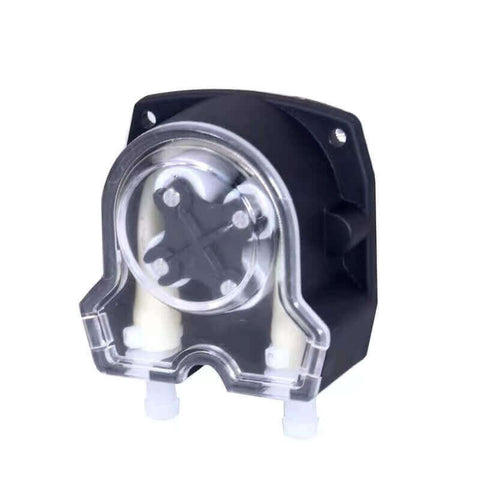
Embracing the Future with PPS CNC Machining
As we reach the end of our exploration into the dynamic world of PPS CNC Machining, it's clear that this technology is not just a part of the present industrial landscape but a significant driver for the future. The unique properties of PPS, combined with the precision and versatility of CNC machining, have already made remarkable impacts across various sectors, from aerospace to automotive, electronics, and beyond.
Looking ahead, the potential of PPS in industry is boundless. As we step into an era of advanced manufacturing processes, sustainability, and digital transformation, PPS CNC Machining stands at the forefront, ready to meet the challenges and demands of these evolving landscapes. Its role in fostering innovation, enhancing efficiency, and promoting eco-friendly practices positions it as a key player in the journey towards a more sustainable and technologically advanced future.
In conclusion, whether it's through pushing the boundaries of design, contributing to greener manufacturing practices, or adapting to the ever-changing demands of the market, PPS CNC Machining is more than just a manufacturing technique—it's a pathway to a more innovative, efficient, and sustainable industrial world. As we continue to explore and harness the capabilities of PPS, one thing is certain: the future of industrial machine building is bright, and PPS CNC Machining is leading the way.
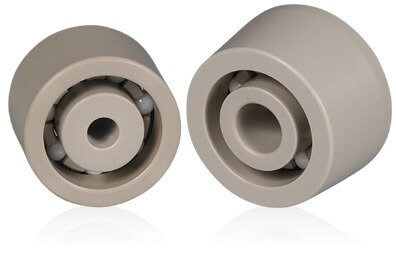
Explore the Possibilities
Ready to harness the power of PPS CNC Machining for your industrial projects? Click the button below to explore how this cutting-edge technology can transform your machine building endeavors.
